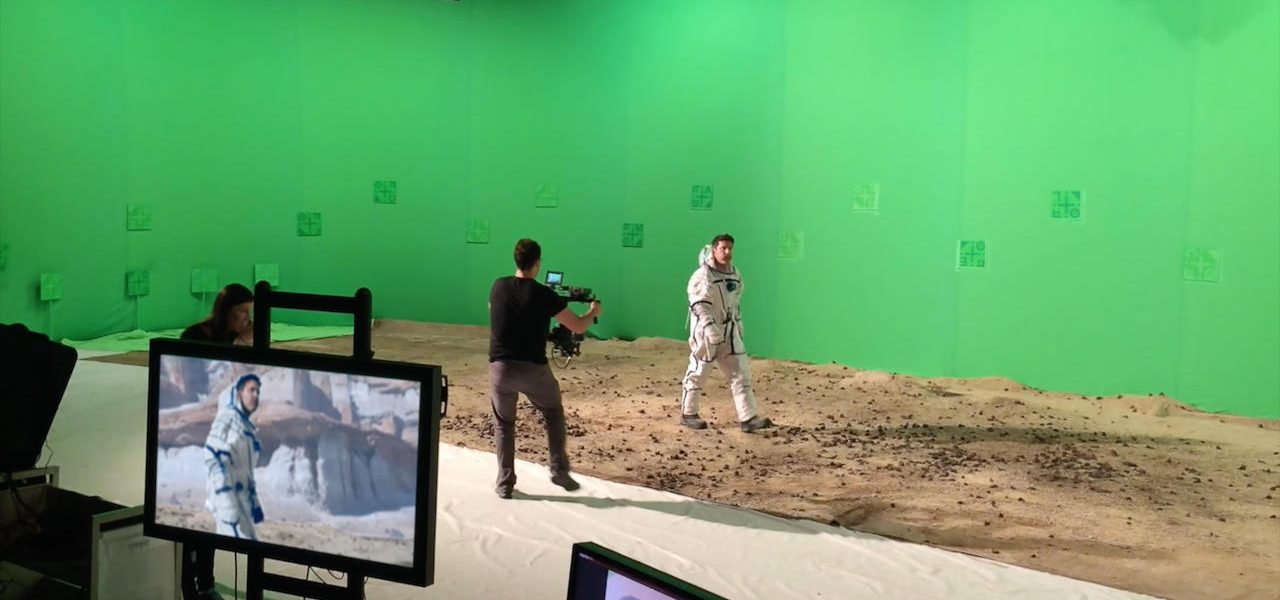
With the pandemic-led restrictions and lockdown, many sectors including the VFX industry suffered tremendous losses. While some had to mandate pay-cuts owing to lack of projects, there were also many job losses.
Now more than ever, there is a growing demand among budding creators and artists for guidance and perspective on how they can go about pursuing a career in the VFX industry.
Senior CG Supervisor Daniele Tosti is one such mentor/artist who has been relentlessly educating and guiding young talent through a dedicated series of interviews with VFX stalwarts.
— In his illustrious career, Tosti has lent his software skills to big-ticket Hollywood projects like Avatar, Iron Man 3, Jungle Book, The Planet of the Apes and The Hobbits. From TV series to commercials to feature films to games, Daniele Tosti is a supervisor with over 25 years of production experience in various fields of the entertainment business. Covering multiple roles, he has led teams to deadlines for some of the most renowned studios, such as Walt Disney, Sony and Weta Digital. And he is now on a mission to provide career guidance, support, inspiration and perspective to the next generation of artists through his Youtube channel named CG careers.
Tosti recently caught up with AnimationXpress for a candid discussion on what spurred him on to create the channel, his VFX journey, new-age technology and challenges in the post covid-world.
Excerpts :-
You’ve been in the VFX Industry for over a decade. Tell us about your journey.
It all started with my older brother giving me a Commodore64 personal computer as a gift back in the late 80′. I realised then I could create something directly from my imagination using this new digital media format. And, eventually, make a living in the process.
That led me to start my professional career in 1990. From live TV to games to animation. All the way to live action VFX in the recent years.
I really never stopped to crave to create art since those early days. And I have been incredibly fortunate to work with really great talent along the way, which made my journey so much more effective.
What inspired you to pursue VFX as a career?
An incredible combination of opportunities, really. The opportunity to express myself as an artist and earn money in the process. The opportunity to learn about how the world around us works and how best solve problems. The opportunity to share my time with other talented people with similar passions. The opportunity to grow and adapt to new challenges. The opportunity to develop something that was never done before. A perfect storm of creativity that fed my continuous curiosity about life and genuinely drove my inspiration.
Tell us about the projects you’ve particularly enjoyed working on in your career
I quite enjoyed working on live TV projects, as the combination of tight deadlines and high quality was quite an incredible learning platform as a professional artist. But working on large, high end live action feature projects was really where I learnt most of my trade. And gave me the most satisfaction.
Every film I worked on had some memorable experiences. Right from Avatar to Iron Man 3 to Jungle Book to The Planet of the Apes to The Hobbits to name a few.
But above all, the technical challenges and the high quality we reached in each and every of the projects that I worked on, the best memories come from working with amazing and skilled artists, from a variety of disciplines. As those were my true mentors and became my best friends.
What are some technologies and trends that you think are emerging in the VFX Industry?
In the last few years there has definitely been a bias from some major studios to make VFX a commodity. In the more negative sense of the word. When any product reaches a level of quality that attracts a mass of consumers and reaches a plateau of opportunities, large corporation tend to respond with maximising its sale values by leveraging marketing schemes and deliverable more than the core values of the product itself. This is often a commoditisation approach that tends to empower agents who are not necessarily knowledgeable of a product’s cycles, and in that process, lowering the quality of the product itself for the sake of profits. It is a pretty common event in modern society and it applies to any brand name, not just VFX.
One challenge with VFX’s technology and artistry is that it relies on the effectiveness of artists and visionaries for the most. And limiting the authority, ownerships and perspective of such a crowd has definitely directly impacted the overall quality of the last decade of productions, both technically and artistically. There are very few and apart creative forces who have been able to deliver project that one could identify as a truly creative breakthrough. While the majority of productions seem to have suffered from some of these commoditisation patterns.
The other bigger challenge with this current trend is that VFX, due to various, historical business arrangements, is often relying on unbalanced resources as well as very small and feeble economic cycles and margins. Which make the entire industry extremely susceptible to marketing failures and to unstable leadership. As a few recent bankruptcies have demonstrated.

It is taking some reasonable time for the VFX crowd to acknowledge these trends and learn to be profitable, as the majority has never been educated on fair business practices.
But. Thankfully, the VFX circle is also a crowd of extremely adaptable and talented individuals, who are quite capable at resolving issues, finding alternatives and leveraging their passion. Which I believe is one of the drives behind the current evolution in the use of artificial intelligence, virtual reality, virtual production, real time rendering, and so on.
There is still a long path ahead of us but I hope we are all learning ways to make our passion speaks in profitable ways for everyone.
It is also highly likely that, in a near future, larger software and hardware corporation, thanks to their more profitable business practices, large development teams and better understanding of marketing, will eventually take over a lot of the cycles that the current production houses currently run. And in that process allow creative studios to focus back on VFX artistry.
What effect has the pandemics-induced lockdown had on the industry?
It is still early to say. I fear that if live action production does not start soon, we may see some of the economic challenges I mention above. At both studio and artists’ scale. There is definitely a push from production houses to make large distribution clients understand the fragility of the moment, especially in relation to payment cycles and economic support. Thus, there is still a fair risk that the few studios which adopted a more commoditised view to production will make their artists pay some price for their choices.

But, any challenge brings opportunities. For example, there is finally some recognition into a momentum to rely on work-from-home as a feasible solution to a lot of the current office production’s limitations and general artistry restrictions. Which, while there is no win-win in this pandemic, could be a silver lining.
What would you say to the budding artists who wish to become CG artists or VFX professionals?
Follow your passion but treat this career as any other business.
Learn to be adaptable. Find a true balance between professional and family life. Carefully plan your future. And watch our channel to learn more about all these.
What inspired you to create a channel for aspiring artists?
As many fellow and respected artists, I love this industry, but I had to understand a lot of business practices at my own expenses.
You can learn tools, cycles and software from books and schools. But production life tends to drive its own rhythms and there are fewer opportunities to absorb those.
Along my career I had some challenges finding professional willing to share their time to invest into me. But I was still extremely fortunate to find other mentors who helped me to be economically and professionally successful in this business. I owe a lot to these people. I promised myself I would exchange that favour by helping other artists, myself.
What can students expect to learn from your channel?
I am excited to have the opportunity to fill some of the voids that the current education systems and industry may have. This by helping new artists with true life stories by some of the most accomplished and successful talents I met during my career. We will talk about technology trends as much as our life experiences as artists. Discussing career advises. Trying to look into the future of the industry. And suggesting professional tips. The aim through this mentor-ship is to inspire new generations to focus on what is more important for the VFX industry. Take responsibilities for their art and passions as much as their families.
And, in the process, to feel empowered to materialise from their imagination more and more of those creative, awe inspiring moments that this art form has gifted us with so far.
